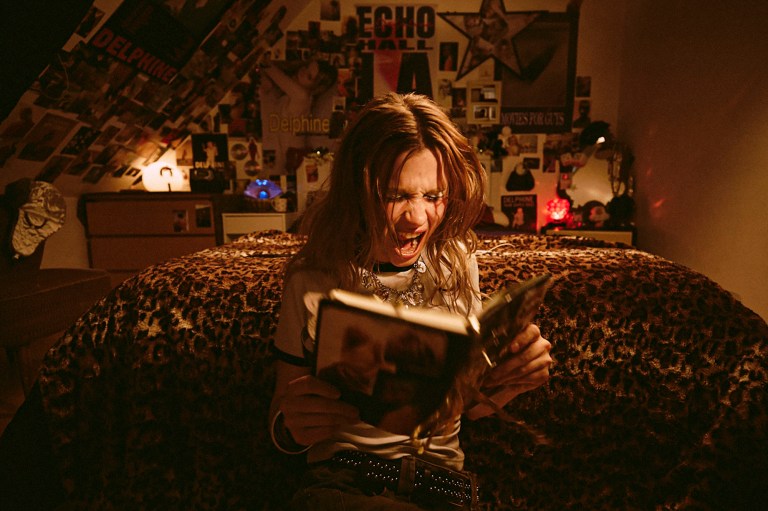
15 Reasons It’s Smarter To Get Married In Your 20s

US Census data and otherwise has repeatedly shown more couples are opting to marry later in life than ever before. True, there are some great reasons why a couple should wait to tie the knot: like finishing college or working overseas. But there are a lot of lame excuses being made to put off marriage like, “taking time to find yourself” or “not in an ideal financial situation.” Let’s be real — aren’t we always “finding ourselves”? Our hobbies and passions are ever changing. And when will we ever be in a great financial situation? Not any time soon with the average US student loan debt at $29,400! Some view putting off marriage as a wise decision—personally and professionally. However, there are many reasons why couples should choose to marry sooner rather than later:
Couples who marry younger are happier.
The Knot Yet Project found unmarried 20-somethings as more likely to drink excessively and suffer from depression than their married counterparts. As far as life-satisfaction goes, “35 percent of single men and cohabiting men report they are “highly satisfied” with their life, compared to 52 percent of married men. Likewise, 33 percent of single women and 29 percent of cohabiting women are “highly satisfied,” compared to 47 percent of married women.” In the end, married 20 year olds are happier than unmarried 20 year olds.
No money? No problem.
It’s a common conception that a couple must have savings to get married. While I agree a stable income and savings is vital for child-rearing — when it comes to marriage itself, it couldn’t be further from the truth. Consider writer and professor Karen Swallows, in her article about marrying young in The Atlantic. She said she and her husband didn’t have money when they married at 19. They moved from crappy apartment to apartment. At one point they borrowed money from a church. But they pushed through together. Speaking on her marriage, “Our achievements have come, I am convinced, not despite our young marriage, but because of it.”
Married men earn more.
It’s no secret men earn more than women (basically) across the board. But apparently married men earn more than other, similarly qualified single men — and this has been the case for decades. Are married men considered more responsible? Or more productive? Who knows.
On the bright side, if you happen to be in a less fortunate financial situation when hitched, at least you can look forward to the male-half of the marriage earning more.
Couples who marry younger have more sex.
Research proves that married couples in general have more sex than their unmarried counterparts. The Kinsey Institute found that over 85 percent of married couples in their late 20s have sex at least a few times a month compared to only 35 percent of their single counterparts. There could be lots of reasons for this, like more trust and no need for protection between married couples. Either way, married 20-somethings have more sex.
Higher fertility.
What goes hand-in-hand with sex? Duh. Babies.
And unfortunately fertility rates for women start to drop around 27. After 35 they decrease more dramatically. So, getting married earlier provides the opportunity to conceive younger. Even more, trying to conceive younger could save money in the long run. Because, let’s face it: fertility treatments can cost a small fortune (For instance, the successful In Vitro Fertilization can amount to $13,000 – $14,000 when all is said and done.)
It’s healthier for the mother to carry younger.
Beyond increased fertility, a younger mother has lower chances of certain pregnancy risks. Not to mention the slough of risks that appear after age 35. It is healthier for the child, too. I could browse journals across the web to find all infant-related health risks that coincide with older mothers. But I don’t want to give anyone (or myself) nightmares.
Looking at March of Dimes data on the risk of Down syndrome and mother’s age:
• At age 25, the risk of having a baby with Down syndrome is 1 in 1,250.
• At age 30, the risk is 1 in 1,000.
• At age 35, the risk is 1 in 400.
• At age 40, the risk is 1 in 100.
• At age 45, the risk is 1 in 30.
More energy to raise kids.
Aside from science, younger married couples have more energy to chase kids around the house than those pushing late 30s. This extra energy is even more crucial at the beginning of parenthood where little sleep is the norm with a fussy infant.
Energy to balance career and parenthood.
A common buzzword nowadays is “work-life-balance.” You know, managing a career, parenthood and even taking care of your own parents simultaneously. Making work-life-balance a reality seems much more feasible at a younger age.
The earlier you have kids, the younger you will be when they leave home.
If you finish having kids by 30, your lovely teenagers will (hopefully) be out of the house by the time you hit 48. Talk about free time to pursue interests.
Reclaim career after kids grow up.
In today’s world it’s likely that at least one parent is going to put their career on hold while children are young. Reality check: childcare can be as expensive as college. Literally.
The sooner a spouse takes time from their career, the sooner they can reestablish it. Career blogger Penelope Trunk makes a strong case to marry younger (at least for women). She debunks the common advice, “Wait. You have time. Focus on your career first.” Instead she asserts, “… you have your whole life to get a career. This is not true about having a baby.”
Pursue interests at an older age.
Maybe one doesn’t want to “reclaim their career.” Or they managed to build it while raising kids. Even so with kids out of the house in your 40s, think of all the extra time. Volunteer at the animal shelter. Take that exotic vacation you never could when the kids were little.
Cool grandma/grandpa.
Having kids younger means you will be a young, “cool” grandparent. (Obviously contingent to if and when your offspring have children.) As a young g-parent, you can keep up with grandkids. More importantly, build up a strong relationship with them.
Share more memories with your spouse.
Whether it’s good times or bad times, the sooner you get hitched the more memories there will be to look back on with your beloved. One may argue that a person’s 20s is the decade to be “young, wild and free.” But wouldn’t it be nicer to share all these experiences with someone you will (hopefully) still be with 50-60 years down the line?
Concerning divorce, there’s no reason statistically to wait past 25.
Sometimes people think that young marriages end in divorce at higher rates. Which is true, if the couple marries under the age of 25. But, according to findings from The State of Our Unions “… if you are a reasonably well-educated person with a decent income, come from an intact family and are religious, and marry after the age of 25 without having a baby first, your chances of divorce are very low indeed.”
On your deathbed, what are you going to wish you did differently?
It’s not going to be “partied more” or “been laid more.” It may seem that way now, but in actuality it will be the opposite. A book by a palliative nurse looked at the five biggest regrets of the dying: none relate to partying or sex with strangers. Most have to do with spending more time with loved ones, expressing yourself and allowing yourself to be happier. And you know who is happier? People who get married younger.
Marriage is not easy. There will be ups and downs regardless if you wed at 25 or 30. But the future looks a lot brighter for those who get hitched sooner rather than later. So, if you’re in your 20s and found “the one” — what are you waiting for? Get married and build a lifetime of memories with that person. One day it will be all you have to look back on. ![]()












